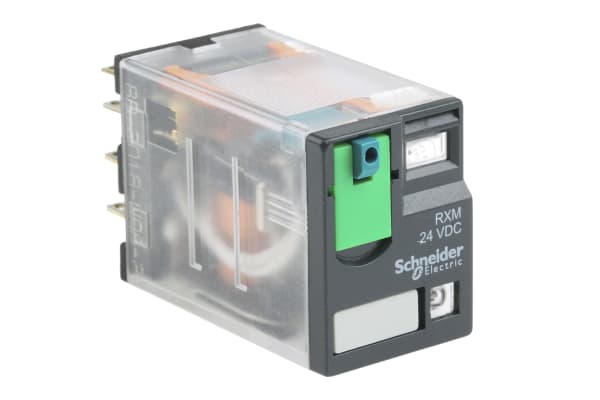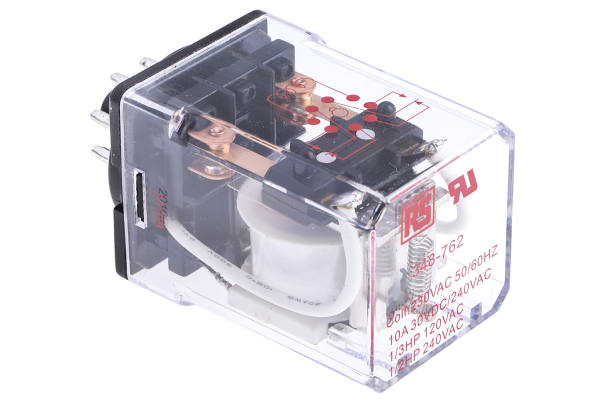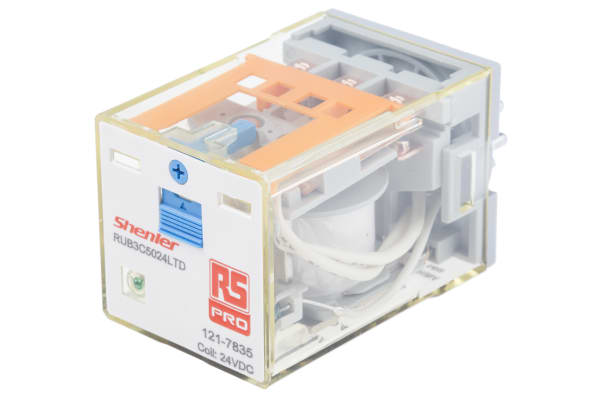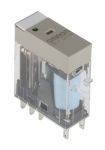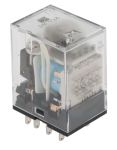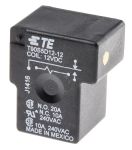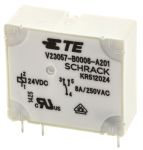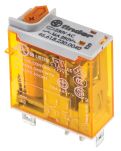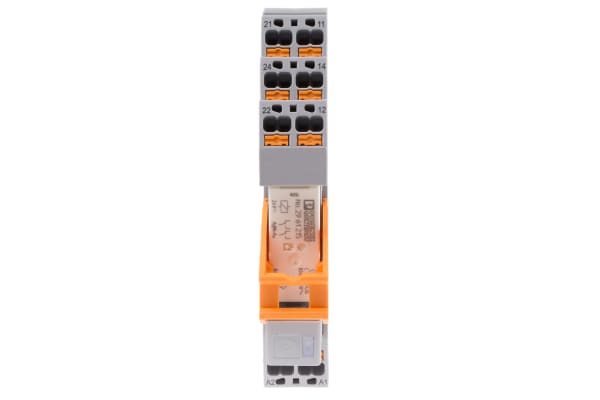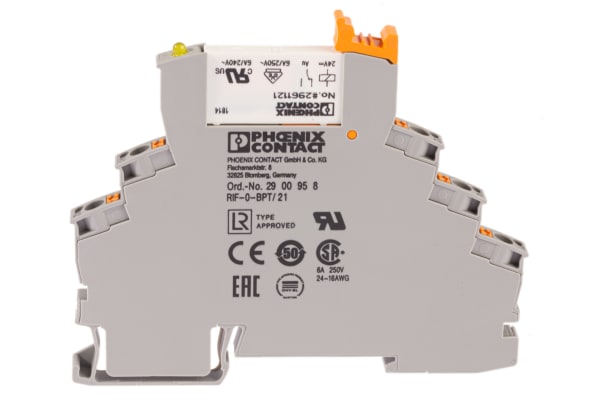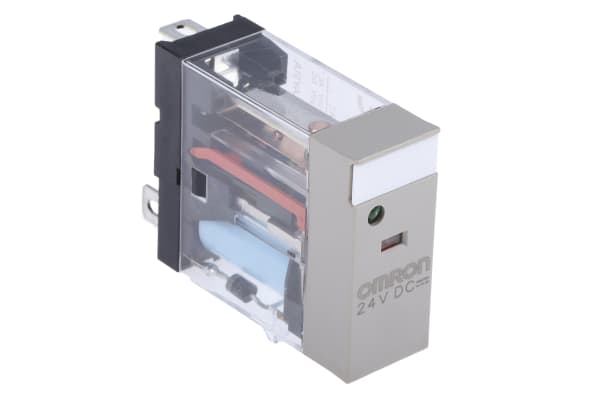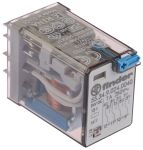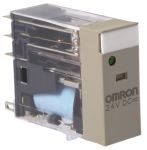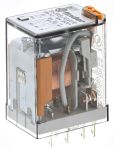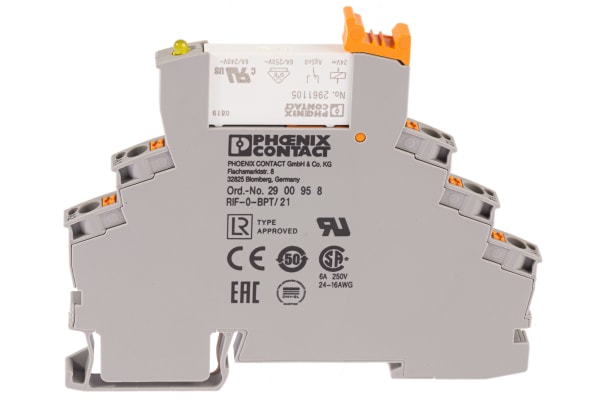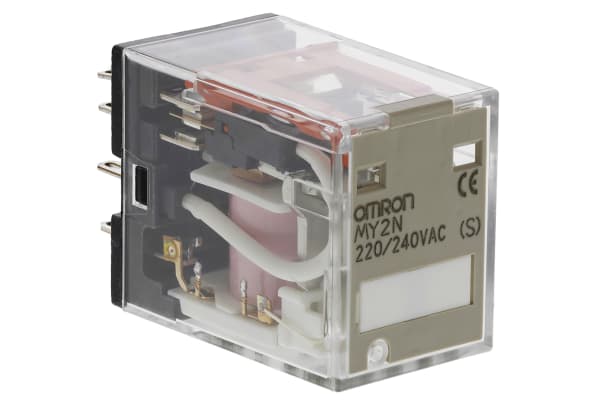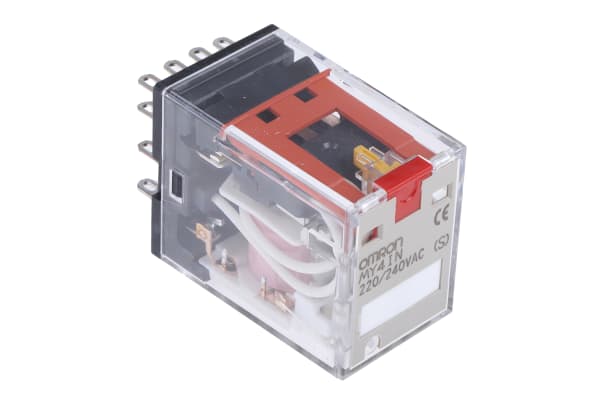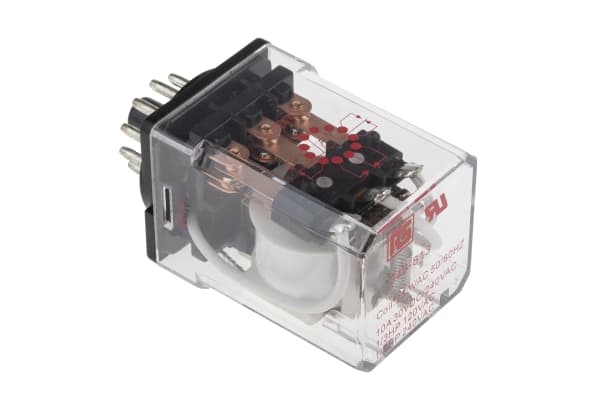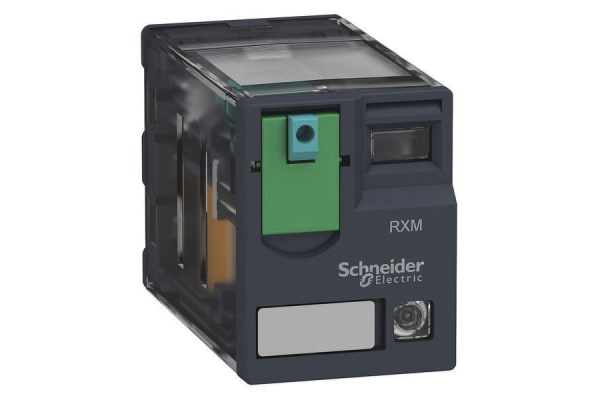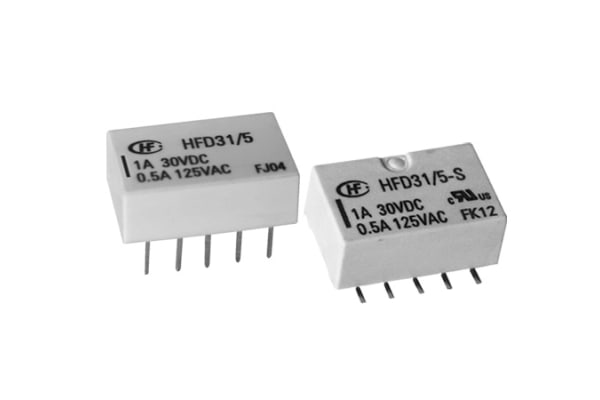Non-Latching Relays
Relays are electrical switches that are operated by electrical impulses with the primary function to open and close a circuit, they can also be referred to as industrial switches. There are 2 main types available, latching and non–latching relays.How do non-latching relays work?Non-latching relays are in a normally closed (NC) position and will stay in this state without power. When power passes through the circuit, the relay switched to a normally open (NO) position by using an internal coil to generate a magnetic force, holding this NO position. Once the current is turned off, it returns to the NC position. This makes non-latching relays well suited to push-button applications like keyboards and micro-controller input buttons.What are non-latching relays used for?Non-latching relays are highly durable and versatile components, making their performance long lasting and suitable for use in a wide range of applications, such as:Automotive enginesHousehold appliancesIndustrial machineryMedical equipmentTelecommunications equipmentWhat is the difference between latching and non-latching relays?Both types of relays in similar in design and function, however, a significant difference between them is that a latching relay will remain in the last position it when it was last powered, whereas a non-latching goes back to its normal position. This makes each more type of relay suitable for different applications. Considerations when selecting a relayWhen choosing a relay, it is important to consider a number of specifications to ensure it is fit for purpose, some factors include:Coil voltage – the required voltage to actuate the switching mechanism. If a voltage is too high this could damage the components, if it is too low then it will not actuate. Contact configuration – This is the state the contacts are in without power. For example SPST, single pole single throw.Contact material – the relay contacts are available in many materials that have certain properties. Common materials are gold, silver, tin oxide and nickel Coil power – the amount of power (watts) the coil operates at. This must match the power in the circuit for correct function. Coil resistance – the amount of resistance (ohms) in the circuit that the coil creates.
-
TE Connectivity, 24V dc Coil Automotive Relay SPNO, 40A Switching Current Plug In Single Pole, V23134B1053C642
IDR205,164.84 -
Schneider Electric, 24V dc Coil Non-Latching Relay 4PDT, 8A Switching Current Plug In, 4 Pole, RXM4AB2BD
IDR205,899.07 -
Schneider Electric, 24V dc Coil Non-Latching Relay DPDT, 5A Switching Current Plug In, 2 Pole, RXG23BD
IDR190,899.80 -
RS PRO, 230V ac Coil Non-Latching Relay DPDT, 10A Switching Current Plug In, 2 Pole
IDR196,144.30 -
RS PRO, 24V dc Coil Non-Latching Relay 3PDT, 10A Switching Current Plug In, 3 Pole
IDR156,286.10 -
Omron, 12V dc Coil Non-Latching Relay DPDT, 5A Switching Current Plug In, 2 Pole, G2R-2-SN 12DC(S)
IDR122,406.63 -
RS PRO, 12V dc Coil Non-Latching Relay 4PDT, 5A Switching Current Plug In, 4 Pole
IDR130,273.38 -
TE Connectivity, 12V dc Coil Non-Latching Relay SPDT, 20A Switching Current PCB Mount Single Pole, T90S5D12-12
IDR191,948.70 -
TE Connectivity, 24V dc Coil Non-Latching Relay SPDT, 8A Switching Current PCB Mount Single Pole, 8-1393215-1
IDR228,869.98 -
Finder, 230V ac Coil Non-Latching Relay SPDT, 16A Switching Current Plug In Single Pole, 46.61.8.230.0040
IDR212,821.81 -
Phoenix Contact, 24V dc Coil Non-Latching Relay DPDT, 50mA Switching Current DIN Rail, 2 Pole, 2903330
IDR168,558.23 -
Phoenix Contact, 24V dc Coil Non-Latching Relay SPDT, 1mA Switching Current DIN Rail Single Pole, 2903368
IDR223,310.81 -
Omron, 24V dc Coil Non-Latching Relay SPDT, 6A Switching Current Plug In Single Pole, G2R1SND24DCS
IDR196,668.75 -
Finder, 24V dc Coil Non-Latching Relay 4PDT, 7A Switching Current Plug In, 4 Pole, 55.34.9.024.0040
IDR187,753.10 -
Finder, 230V ac Coil Non-Latching Relay 3PDT, 10A Switching Current Plug In, 3 Pole, 55.33.8.230.0010
IDR263,798.35 -
Omron, 24V dc Coil Non-Latching Relay DPDT, 6A Switching Current Plug In, 2 Pole, G2R-2-SND 24DC(S)
IDR310,264.62 -
Finder, 110V ac Coil Non-Latching Relay 3PDT, 10A Switching Current Plug In, 3 Pole, 55.33.8.110.0010
IDR207,262.64 -
Phoenix Contact, 24V dc Coil Non-Latching Relay SPDT, 10mA Switching Current DIN Rail Single Pole, 2903370
IDR212,821.81 -
Omron, 240V ac Coil Non-Latching Relay DPDT, 10A Switching Current Plug In, 2 Pole, MY2N AC220/240(S)
IDR139,293.92 -
Omron, 240V ac Coil Non-Latching Relay 4PDT, 5A Switching Current Plug In, 4 Pole, MY4IN AC220/240(S)
IDR254,358.25 -
RS PRO, 230V ac Coil Non-Latching Relay 3PDT, 10A Switching Current Plug In, 3 Pole
IDR200,654.57 -
Schneider Electric, 24V dc Coil Non-Latching Relay 4PDT, 3A Switching Current Plug In, 4 Pole, RXM4GB2BD
IDR185,655.30 -
Siemens Non-Latching Relay, LZS:RT78726
IDR221,947.24 -
Hongfa Europe GMBH, 5V dc Coil Non-Latching Relay DPDT, 2A Switching Current Surface Mount, 2 Pole, HFD31/5-S
IDR198,346.99Pack (1 Pack of 5)




